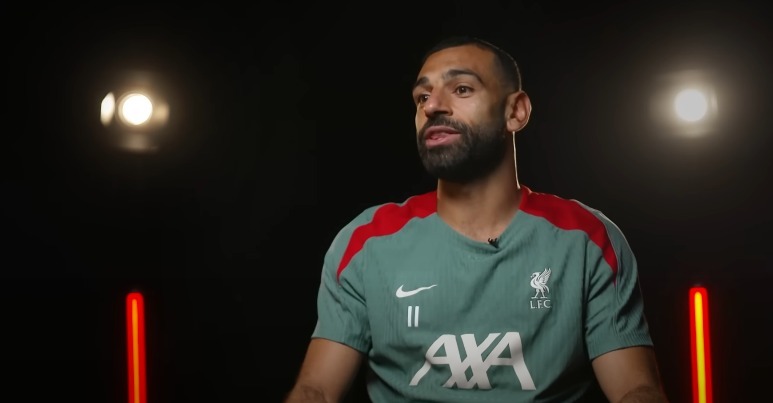In addition to donning Liverpool’s recognizable number eleven, Mohamed Salah is essentially changing the way the team views its financial future. The Egyptian forward sent a particularly strong message when he signed a new contract in April 2025, demonstrating not only his loyalty but also his influence, legacy, and leverage.
With his impressive weekly salary of £400,000, Salah has become extremely wealthy. According to Capology and Spotrac, this salary amounts to an astounding £20.8 million per year. For comparison, that is almost twice the salary of Virgil van Dijk, the next highest paid player at Liverpool. In addition to keeping its star, the club is redefining what retention costs in contemporary football by giving Salah such a resounding reward.
In addition to leading Liverpool in goals and assists over the last few seasons, Salah has become the team’s most marketable asset, drawing praise, attention, and advertising funds. He is positioned alongside superstars like Kevin De Bruyne and just behind Erling Haaland, whose Manchester City salary package reportedly exceeds £27 million annually, thanks to his extended contract, which notably runs until June 2027.
| Attribute | Information |
|---|---|
| Full Name | Mohamed Salah Hamed Mahrous Ghaly |
| Date of Birth | June 15, 1992 |
| Nationality | Egyptian |
| Position | Right Winger / Forward |
| Current Club | Liverpool FC |
| Weekly Salary (2025) | £400,000 |
| Annual Salary (2025) | £20.8 million |
| Contract Expiry | June 30, 2027 |
| Net Worth Estimate | £90–£100 million |
| Reference Link | Capology Profile |
Liverpool is effectively adjusting to the current salary arms race by acquiring Salah at such a high price. The Premier League has developed into a fiercely competitive arena where it is frequently necessary to go above and beyond conventional pay scales in order to retain top talent. For Liverpool, this meant changing their renownedly conservative compensation structure under the direction of Fenway Sports Group.

Clubs with enormous financial reserves have significantly changed market expectations in recent transfer windows. The bar has been considerably raised by Kylian Mbappé’s massive PSG contract worth over €31 million a year and Sadio Mané’s staggering €40 million salary at Al Nassr. In light of this, Salah’s £20.8 million seems surprisingly small.
Salah not only showed commitment, but he also showed what it looks like to put legacy ahead of a short-term raise by thwarting Barcelona’s interest, who were rumored to be preparing a rival offer in late 2024. His reputation among supporters and club officials alike is enhanced by that subtly significant decision.
Salah’s camp made sure his pay reflected both his performance and persona by taking calculated risks and negotiating strategically. His picture has enormous cultural value. Salah is more than just an athlete to young supporters in the Middle East and Africa; he represents hope. Despite his rapidly rising fame, he has remarkably maintained his groundedness by supporting education, funding community hospitals, and endorsing brands.
In light of the changing economics of football, Salah’s pay serves as a new benchmark. The reverberation is already expected in Liverpool’s locker room. Citing the new top benchmark, players like Trent Alexander-Arnold and Alisson Becker may soon seek better terms. If wage gaps are not handled carefully, they can be destabilizing, especially in highly cohesive squads.
However, there is some rationale behind the club’s decision to give Salah such a large reward. He has continuously delivered since coming here in 2017—winning awards, setting records, and fostering community ties. Spreadsheets and statistics sheets can’t capture that kind of impact.
This most recent chapter feels especially reassuring to supporters who have followed Salah’s journey from his modest beginnings in Nagrig, Egypt, to the bright lights of Anfield. His tale follows a well-known but motivational pattern: talent developed under duress, gradually advanced via self-control, and ultimately led to a position of leadership on one of football’s biggest stages.
He currently makes over £57,000 every matchday, which for many people is equivalent to a year’s salary. Value is the true question raised by that figure, despite the fact that it may seem extravagant. A player’s value changes when their influence extends beyond goals and assists and touches on issues of culture, representation, and identity.
Liverpool has made an emotional equity investment in addition to footballing excellence through this deal. Salah is literally the face of a generation, and the club has set itself up to gain from his skill on the field as well as his extensive influence thanks to this new contract.
